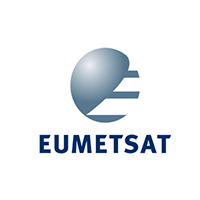Remote Sensing Scientist – Instrument Navigation, Registration and Calibration
Darmstadt, Germany, EUMETSAT [EUMETSAT-RSS]
About this job
Image Navigation, Registration and Calibration (INRC) is a critical function for achieving targeted performances in the processing of Earth observation satellite data. This builds on in depth scientific understanding of specific design features of spacecraft and instruments (e.g. pointing, geometric, radiometric and multi-spectral performances) and of the use of external elements (e.g. selected natural observation targets) to improve over intrinsic performances of instruments and achieve Level 1 products of suitable geometric and radiometric quality.
EUMETSAT is recruiting two new members of the Image Navigation, Registration and Calibration Competence Area of its Remote Sensing and Products (RSP) Division.
Responsibilities
These two Remote Sensing Scientists – Instrument Navigation, Registration and Calibration will provide scientific expertise on relevant INRC algorithms, support the development of new ones , monitor the quality of operational Level-1 image products and support the commissioning of new imaging missions e.g. Meteosat Third Generation, EPS-Second Generation and Copernicus Sentinel-3/-4/-5. From low Earth and geostationary orbits.
One post will focus on geometric processing, navigation, and geometric image quality, and the second on radiometric processing, instrument calibration, and radiometric image quality.
Duties:
- Support algorithm development for Level-1 data processing chains of current and future imaging missions and the commissioning and maintenance of these chains;
- Support the monitoring of image quality and calibration of the generated Level-1 image products for both low Earth (LEO) and geostationary (GEO) orbit systems, including the development of state-of-art tools for analysis;
- Develop and maintain prototype software, in particular geometric and radiometric processing algorithms, in order to improve the operational implementations of Level-1 processing across low Earth and geostationary orbit missions;
- Support the development, procurement, and operations of tools to monitor Level-1 calibration and product quality;
- Support the verification, validation and support during the initial operations phase of the Level-1 data processing systems; including commissioning, the initial focus being on the MTG and EPS-SG missions;
- As a member of multi-disciplinary Instrument Functional Chain teams, interact and cooperate with other scientists and instrument system engineers to optimise the design, development, performance and commissioning of end-to-end instrument chains from sensing to Level 1 products;
- Support interactions with ESA, other development partners and contractors responsible for the development of satellites and instruments to appropriate the required instrument knowledge;
- Interact with the Operations team to optimise the performances during exploitation;
- Initiate and lead relevant scientific/technical studies, including the management of external support contracts.
Profile
- Advanced university degree in remote sensing, physics, engineering, or related fields;
- Candidates must be able to work effectively in English. Some knowledge of German and French would be an advantage;
- In depth scientific and/or engineering knowledge of the use and development of geometric and/or radiometric remote sensing algorithms for Level-1 instrument data processing;
- Demonstrated knowledge of instrument calibration and validation methods, including continuous quality monitoring of satellite products;
- Fluency in a high-level programming language is important (preferable C, C++, or Python) in UNIX environments, including the usage of parallel processing;
- Experience with scientific applications and analysis tools (e.g. MATLAB or IDL);
- Experience with collaborative projects covering research and development work in an operational environment is an advantage;
- Excellent problem solving, analysis, synthesis, and presentation skills and quality orientation;
- A demonstrable learning orientation and the willingness to expand own knowledge/skills;
- Good inter-personal skills and a proven ability to apply these to interactions within a team and between teams.
For information on how the personal data in your application is processed, please see the EUMETSAT Privacy Policy.
